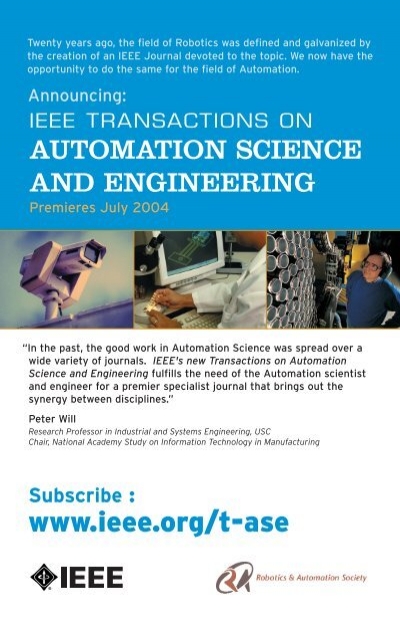Enhancing Attitude Tracking With Self-Learning Control Using Tanh-Type Learning Intensity
IF 6.4
2区 计算机科学
Q1 AUTOMATION & CONTROL SYSTEMS
IEEE Transactions on Automation Science and Engineering
Pub Date : 2025-06-20
DOI:10.1109/TASE.2025.3581953
引用次数: 0
Abstract
This paper investigates the attitude tracking control problem for spacecraft. A tanh-type self-learning control (TSLC) approach with variable learning intensity (VLI) is proposed, which avoids saturation while overcoming previous algorithms’ long response time disadvantage. Unlike the previously introduced VLI method, the enhanced TSLC does not tweak the learning intensity based on the previous controller output. Instead, it relates learning intensity to an intermediate variable directly related to the system state and tunes the learning intensity using a tanh-type function. Since the system state reflects the tracking error in real-time, the transformed tanh-type function has a higher decay rate than the exponential function, which not only significantly reduces the saturation response but also improves the response speed and achieves higher steady-state accuracy. Simulation proved TSLC’s superiority, considering adverse actuator factors such as dead zone, bias torque, and saturation. The proposed approach has also been validated on the Quanser helicopter platform, confirming its better performance. Note to Practitioners—Unlike spacecraft control algorithms based on observers, adaptive methods, or neural networks, the proposed algorithm is simpler in control structure and consumes fewer computational resources. With the self-learning mechanism, the desired control accuracy can be achieved without needing an accurate spacecraft dynamics model. It is model-free and exceptionally easy to implement.利用tanh型学习强度增强自我学习控制的态度跟踪
研究了航天器的姿态跟踪控制问题。提出了一种可变学习强度(VLI)的tanh型自学习控制(TSLC)方法,克服了以往算法响应时间长的缺点,避免了饱和。与先前引入的VLI方法不同,增强的TSLC不会根据先前的控制器输出调整学习强度。相反,它将学习强度与与系统状态直接相关的中间变量联系起来,并使用tanh型函数调整学习强度。由于系统状态实时反映了跟踪误差,因此变换后的tanh型函数比指数函数具有更高的衰减率,不仅显著降低了饱和响应,而且提高了响应速度,达到了更高的稳态精度。仿真证明了TSLC的优越性,该方法考虑了致动器的不利因素,如死区、偏置转矩和饱和。所提出的方法也在Quanser直升机平台上进行了验证,证实了其更好的性能。与基于观测器、自适应方法或神经网络的航天器控制算法不同,所提出的算法在控制结构上更简单,消耗的计算资源更少。利用自学习机制,可以在不需要精确的航天器动力学模型的情况下达到理想的控制精度。它是无模型的,非常容易实现。
本文章由计算机程序翻译,如有差异,请以英文原文为准。
求助全文
约1分钟内获得全文
求助全文
来源期刊

IEEE Transactions on Automation Science and Engineering
工程技术-自动化与控制系统
CiteScore
12.50
自引率
14.30%
发文量
404
审稿时长
3.0 months
期刊介绍:
The IEEE Transactions on Automation Science and Engineering (T-ASE) publishes fundamental papers on Automation, emphasizing scientific results that advance efficiency, quality, productivity, and reliability. T-ASE encourages interdisciplinary approaches from computer science, control systems, electrical engineering, mathematics, mechanical engineering, operations research, and other fields. T-ASE welcomes results relevant to industries such as agriculture, biotechnology, healthcare, home automation, maintenance, manufacturing, pharmaceuticals, retail, security, service, supply chains, and transportation. T-ASE addresses a research community willing to integrate knowledge across disciplines and industries. For this purpose, each paper includes a Note to Practitioners that summarizes how its results can be applied or how they might be extended to apply in practice.
 求助内容:
求助内容: 应助结果提醒方式:
应助结果提醒方式:


